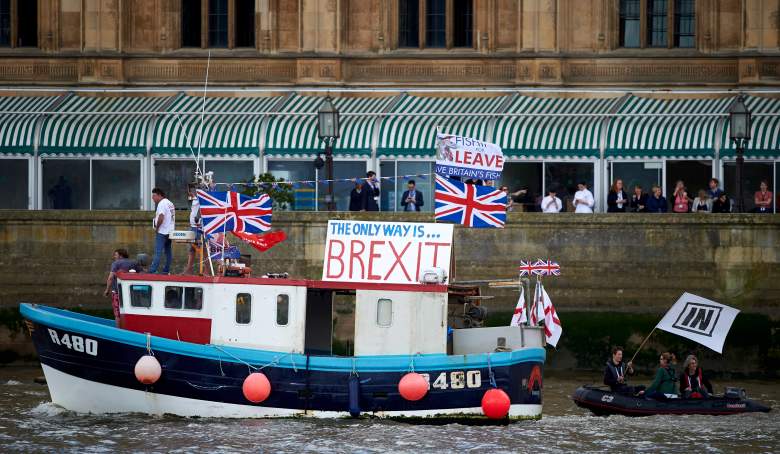
Thursday voters will decide whether Britain will stay within or leave the European Union. (Getty)
Thursday marks a significant moment in Britain’s future when voters will go to the polls to determine whether to remain within or leave the European Union (EU). The outcome of ‘Brexit’ – as the EU Referendum is often called – is irreversible and will have a significant impact both on millions of people living within the United Kingdom and its citizens abroad. But what exactly is the referendum and what’s at stake? Here’s what you need to know.
1. In 2013 David Cameron Committed to a Referendum Vote if He Was Re-elected in 2015
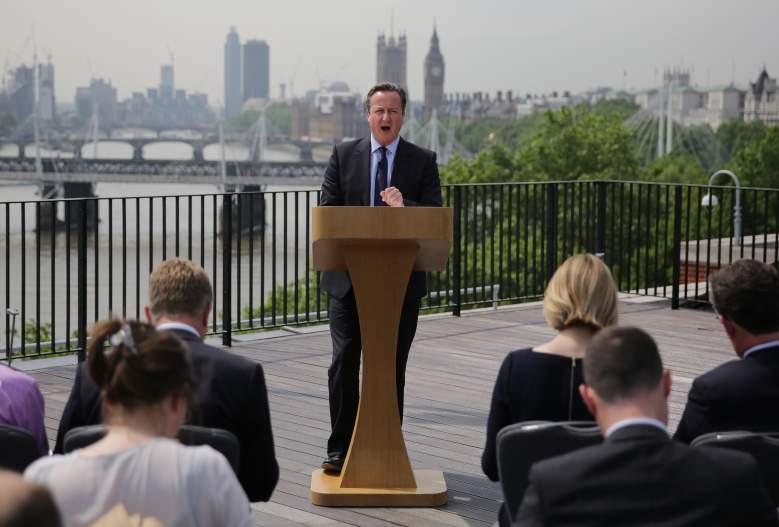
British Prime Minister David Cameron called for an EU Referendum, as promised, after winning re-election in 2015. (Getty)
David Cameron was first elected as Prime Minister of the United Kingdom in 2010. In 2013, amid growing Euroscepticism, Cameron promised to re-negotiate EU membership and hold an in-out referendum before 2018 if his Conservative Party (the Tories) were re-elected in 2015. Cameron and the Conservative Party won re-election in May 2015, and in October Cameron was told by fellow heads of government within the EU that British demands for membership renegotiation would need to be produced in time for the European summit in December. Then, after a summit to renegotiate terms with Brussels, Cameron announced in February of this year that the vote would be set for June 23:
2. National Security & The Economy Are Central Issues
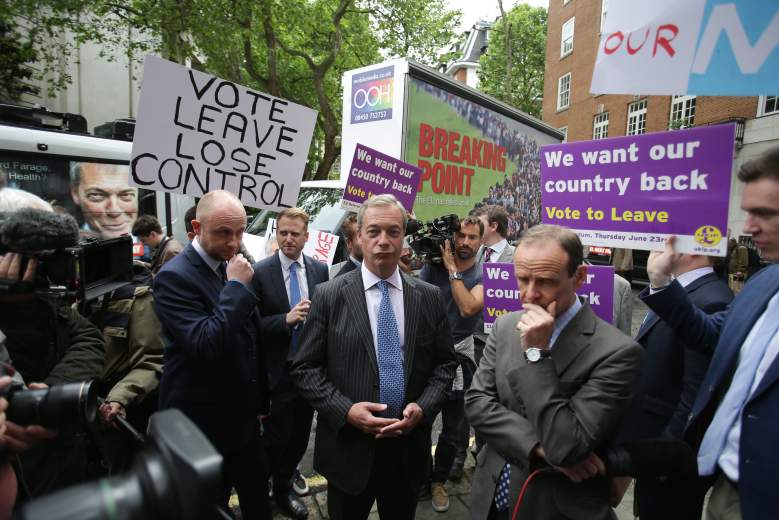
The UK Independence Party Leader (UKIP) Nigel Farage leads the “leave” campaign. (Getty)
The two campaigns on either side of the Referendum argument are “Vote Leave,” lead by Nigel Farage of the UK Independence Party (UKIP) and “Britain Stronger in Europe,” (“Vote Remain”) lead by David Cameron of the Conservative Party with support from Jeremy Corbyn as head of the Labour Party. The main issues revolve around national security issues (mainly terrorism and immigration) and the economy (specifically job creation and trade negotiations).
Those who support leaving the EU believe that membership has hampered British sovereignty, weakened or at least stagnated the British economy, and made Britain less secure due to an immigration influx. Further, they argue that there are trade alliance options outside EU membership where Britain would not have to pay high membership costs.
Supporters of remaining in the EU, in contrast, argue that Britain’s economy and national security as inherently tied to and strengthened by relations with Europe, particularly access to Europe’s free trade single market and cross-border cooperation with fellow EU member states to fight terrorism. Cameron, a proponent for Britain to remain within a reformed EU, believes that the United Kingdom will be “safer, stronger, better off” than if it were to leave. He has further suggested that if Britain votes to remain within the reformed EU (at which time outlined reforms will be immediately enacted) it will hold a unique position with access to all the benefits of EU membership without burdensome obligations that beset other member states, such as: adopting the euro as currency, taking part in Euro bailouts, allowing passport free or no-borders-area travel, or a proposed European army.
3. This Isn’t Britain’s First Referendum Vote
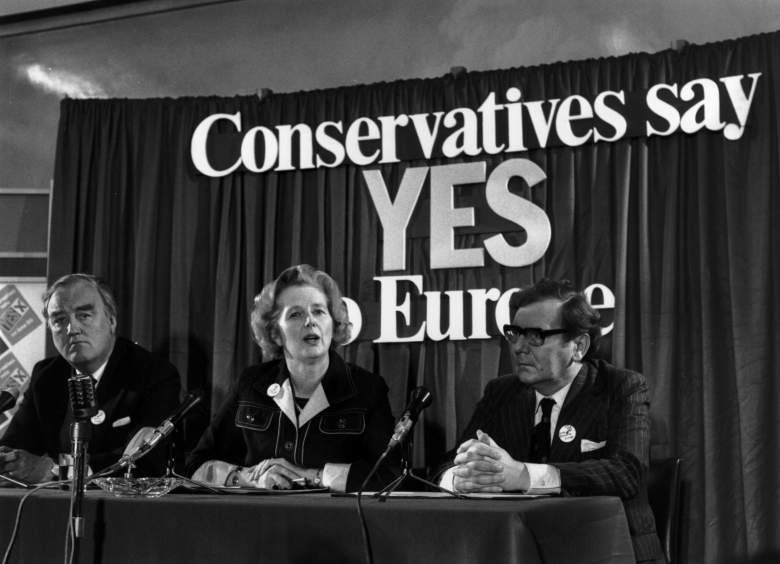
In 1975, Conservative Party leader and future Prime Minister Margaret Thatcher, center, with William Whitelaw and Peter Kirk supported remaining within the EEC. (Getty)
Britain joined the EU, then known as the European Economic Community (EEC) or Common Market, in 1973 after several unsuccessful bids for membership. However, in 1975 the Labour government held a referendum on membership, with the recommendation for remaining. Even leaders of the opposition Conservative party campaigned to stay within the Common Market, including Tory leader and future Prime Minister Margaret Thatcher. The remain campaign was successful and received 67 percent of the votes.
After voters choose to remain, Britain’s Home Secretary Roy Jenkins stated: “It puts the uncertainty behind us. It commits Britain to Europe; it commits us to playing an active, constructive and enthusiastic role in it.”
Now, those who argue for leaving the EU suggest that major changes have occurred in Britain since the last referendum was held more than 40 years ago, particularly in a decrease of national sovereignty as decisions are increasingly under EU rules and regulations.
4. More Voters Are Eligible Than For a General Election & More Than 3.5 Million Are Newly Registered
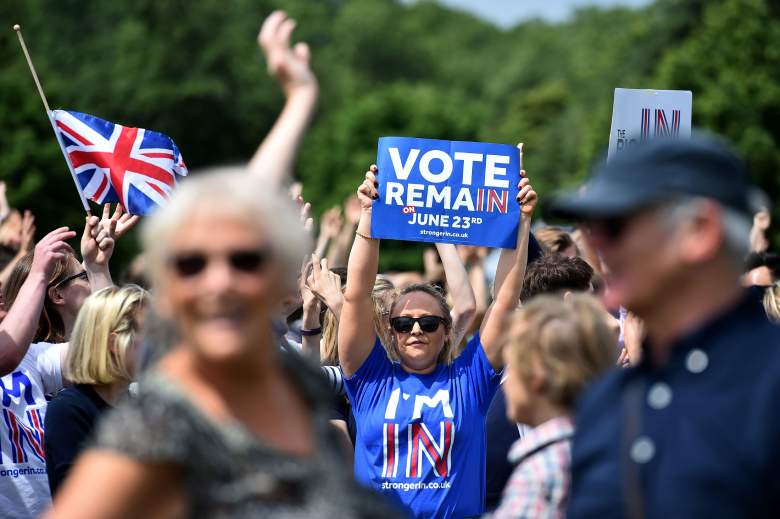
Younger, mobile Brits are more likely to vote “remain,” while older generations who remember pre-EU Britain are likely to vote “leave.” (Getty)
Eligible voters in the EU Referendum are over 18, resident in the UK, and British, Irish and Commonwealth citizens. Nationals of the UK who have been registered to vote at some time within the last 15 years may vote even if they are living abroad. Additionally, unlike general elections, 23,000 Commonwealth citizens in Gibraltar along with members of the UK Parliament House of Lords are eligible to vote. The total number of eligible voters in this election is just under 46.5 million.
Between April 15 and June 9 more than 3,500,000 people registered to vote in the EU Referendum, with more than half under the age of 34. This contrasted the new registration of older voters, with only 5 percent over the age of 65. This is significant, as younger demographics are typically less likely to vote but are most likely to be impacted by the outcome of Brexit as they take advantage of the freedom to move and work within the common market. The older generations historically have higher voter turn-out, and are more likely to vote in favor of leaving the EU.
5. Polls Show the Vote May be Close
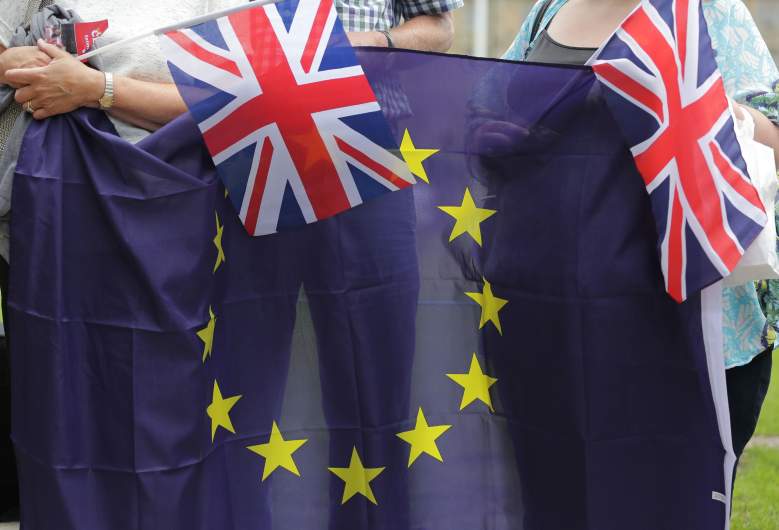
Polls predict a close call between “remain” and “leave” with many voters still undecided. (Getty)
Britain’s potential departure from the European Union at one time seemed highly unlikely, but polls have recently indicated a much tighter race with support amongst those favoring “leave” having grown in opposition to “remain” in the last few months. As of June 18 the EU Referendum poll tracker has 45 percent voting “remain” and 42 percent voting “leave.” However, the constant updates in betting markets may provide better accuracy than the snapshots in time of voter polls. Currently aggregated betting market data indicates a 74 percent expectancy of voters choosing to remain within the EU and 26 percent expectancy of voters choosing to leave the EU. Since polling began in April 2016 the highest expectancy for “remain” was 81 percent on May 28, coinciding with the lowest expectancy for “leave” at 19 percent on the same day.
Support for Britain to remain within the EU has grown in the last week since the shocking June 16 death of Labour MP Jo Cox, who was a fervent supporter of immigration and the “remain” campaign. Since then, predictions for “remain” increased 12 percent from 62 percent, whereas predictions for “leave” decreased 14 percent from 38 percent.
